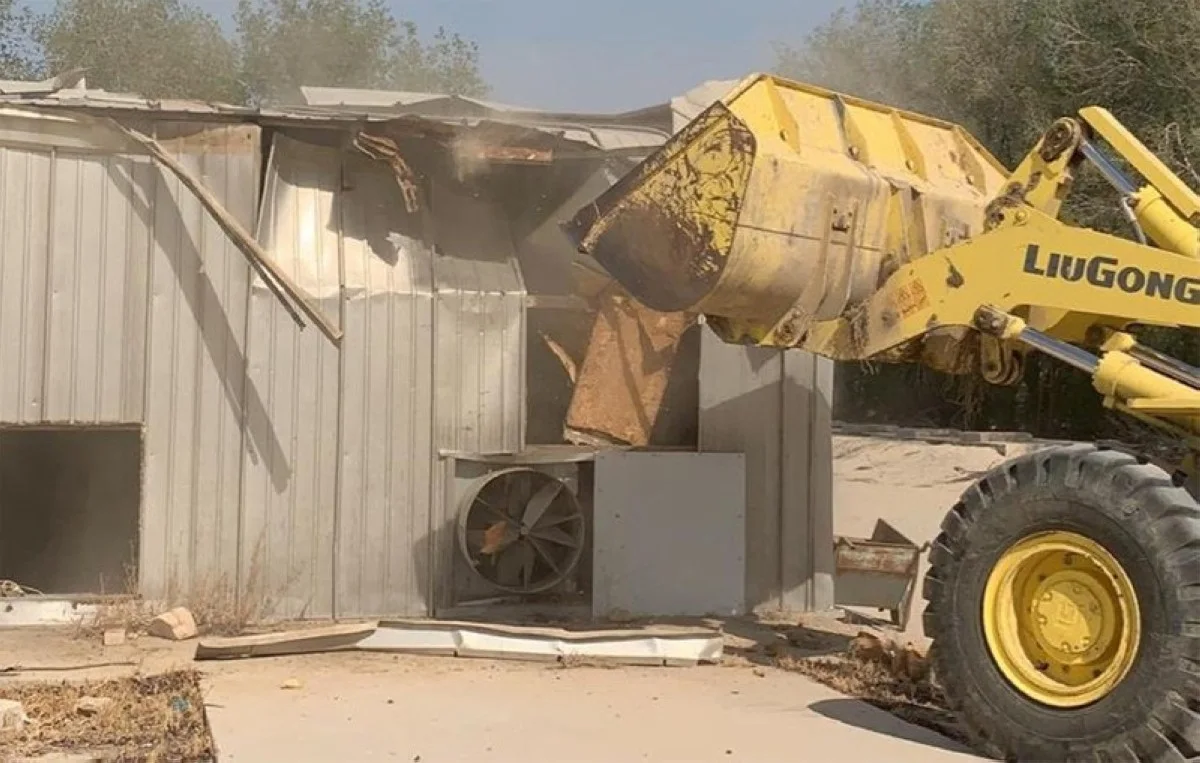08/10/2024
08/10/2024

KUWAIT CITY, Oct 8: The Kuwait Municipality launched a campaign today to remove encroachments on state property located in desert areas, starting from Al-Wafra Road (Road 306) in the southern part of the country. Approximately 100 illegal sites were cleared, which reportedly accounts for only 5% of the existing violations, according to a municipal source speaking to "Al-Jarida."
Accompanying the campaign, Minister of State for Municipal Affairs and Minister of State for Housing Affairs Abdullatif Al-Mishari emphasized that there would be no leniency in removing all slums encroaching on state property in exposed desert areas across the south and north of the country. He noted that a mechanism is in place to organize wilderness areas to allocate sites for "livestock owners" and register them, facilitating the identification of those occupying these areas to prevent further encroachments on state property.
During a press statement made while touring the area with representatives from the ministries of interior, defense, finance, the Public Authority for Agriculture Affairs and Fish Resources, and the Public Authority for the Environment, Al-Mishari said, “We began today an organizational campaign against slums in Kuwait's desert. We will coordinate with the Ministry of Commerce and Industry to provide temporary points for selling fodder near grazing areas.”
When asked about providing a slaughterhouse for residents in the southern region (Sabah Al-Ahmad, Al-Wafra, and Al-Khairan), Al-Mishari responded: “We will assess the needs of residents in the southern regions and provide them with what they require through our expertise and correct methods. However, the randomness observed during this campaign poses more health and environmental risks than addressing the needs of southern residents. Random slaughterhouses are unhealthy and lack proper oversight.”
He continued, “We are attuned to the citizens' needs and will provide them with everything they require. We will not tolerate the current encroachments. We have initiated the removal process and formed a team comprising various agencies to work in the field, starting in the southern region and then moving to the northern area, covering all desert regions in Kuwait.”
Regarding the camping situation, the Minister stated: “It will remain as it has been every year... specific times and locations designated by the Kuwait Municipality, with regulations and procedures for registration via the municipality’s website to establish camping sites, as is customary each season, with the payment of specified fees. These procedures will not change.”
In turn, Abdullah Jaber, head of the team responsible for removing encroachments on state property, said, “We have divided the southern region into six work areas, with six specialized teams assigned to remove violations in those areas.” He noted that “encroachments on state property take many forms, including fencing and the construction of fixed or mobile structures.” He also indicated that coordination would be made with the Public Authority for Agriculture Affairs and Fish Resources regarding the registration of livestock owners and granting them temporary permits until a regulatory mechanism is established. “Other violations will be immediately removed.”
Dalal Al-Najjar, Head of the Inspection Department in Ahmadi Governorate at the Environment Public Authority, stated that members of the Authority's Control and Inspection Department are present at the sites where state property encroachments are being removed in the Wafra desert, to monitor existing environmental violations, “most notably the presence of unlicensed slaughterhouses and significant environmental infractions.”
A random market for selling stolen and used tanks seized in southern Kuwait
The Kuwait Municipality announced the seizure of an illegal market set up by undocumented workers, which contained 400 stolen and used water tanks of various sizes in the south of the country. The Municipality’s Public Relations Department stated in a press release that inspection teams in Ahmadi Governorate conducted field monitoring and inspections to confront violators of encroachments on desert areas and their commercial exploitation without obtaining licenses from the relevant official authorities to conduct such activities.


